Google's Find My Device network has finally launched – and the Pixel 8 gets special tracking powers
Now you can find almost anything (as long as it has Bluetooth)
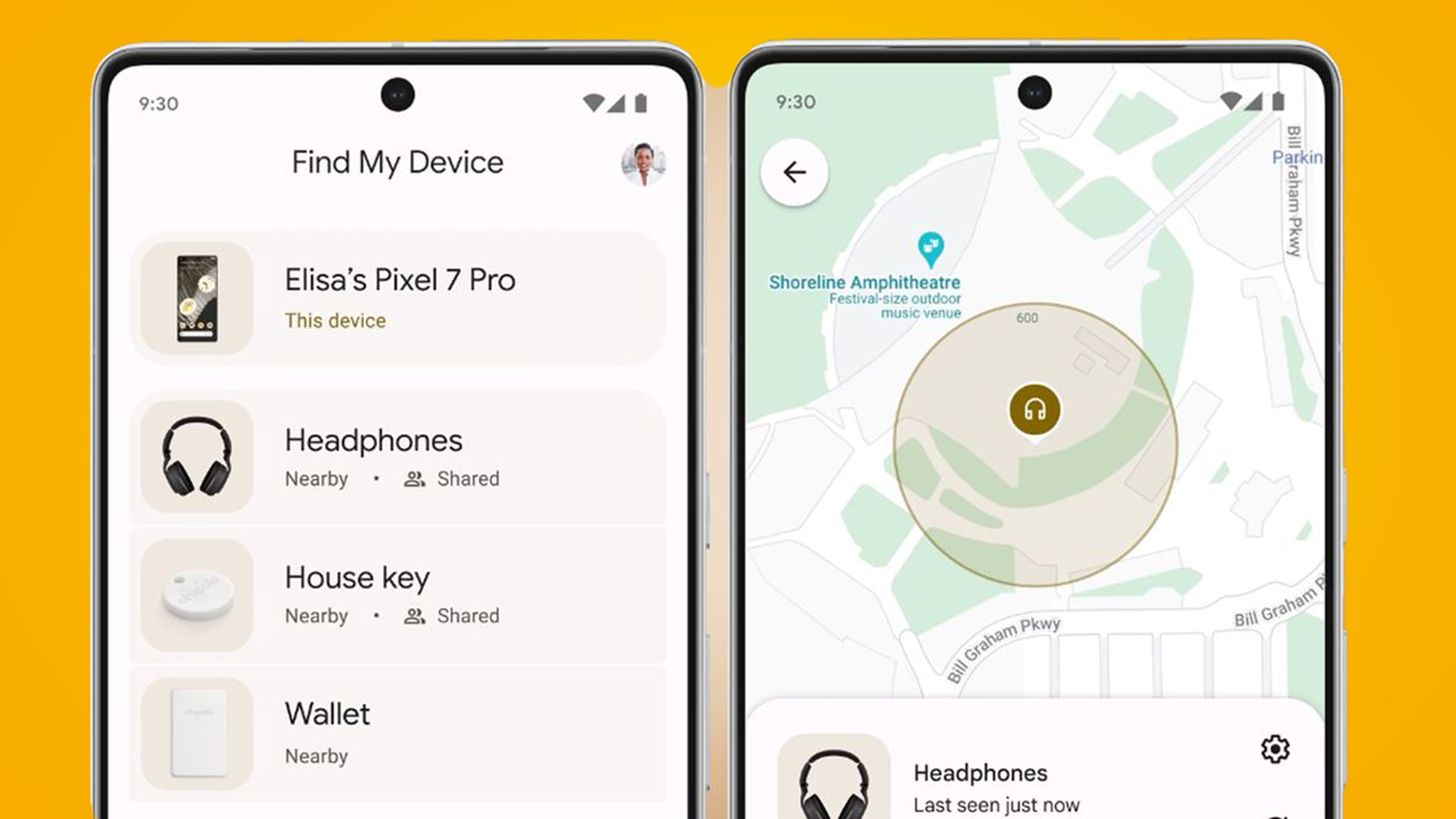
Sign up for breaking news, reviews, opinion, top tech deals, and more.
You are now subscribed
Your newsletter sign-up was successful
Google’s long awaited Find My Device network is finally rolling out, so you’ll be able to track your devices, even when they’re offline.
According to a Google blog post, this is a worldwide rollout, starting with the US and Canada, so if you live elsewhere you might be waiting another few days or so. Still, it should be worth the wait, as this looks to be a powerful upgrade to the company's pre-existing Find My Device functionality.
Previously, you’d only be able to use Find My Device to track your phone if it was connected to the internet – but if it was offline (i.e. without a network connection) you’d be out of luck.
Now though, with the company's new Find My Device network, you can track offline devices too; as the network can leverage over a billion Android devices worldwide to locate any lost devices that are within Bluetooth proximity, including new trackers from Chipolo and Pebblebee.
The Pixel difference
Better yet, if you’re looking for a Google Pixel 8 or a Pixel 8 Pro, thanks to ‘specialized Pixel hardware’ you’ll be able to find your phone even if it’s shut down or the battery is dead.
Presumably, this feature will come to the Google Pixel 9 and other future Pixel phones too, and we wouldn’t be surprised if other brands also get in on the action, but for now it’s a Pixel 8-exclusive perk.
The new Find My Device network also works with Bluetooth tags from Chipolo and Pebblebee, while support for tags from additional brands are set to be added later this year. As a result, if you attach one of these tags to a wallet, your keys, or any other item that doesn’t have its own Bluetooth signal, you’ll be able to track those too.
Sign up for breaking news, reviews, opinion, top tech deals, and more.
Just as with the concerns around Apple's 'Find My' network, Google’s Find My Device network was built with privacy and security in mind, so you’ll also get unknown tracker alerts if you appear to be being followed by a Bluetooth tag that you haven’t registered.
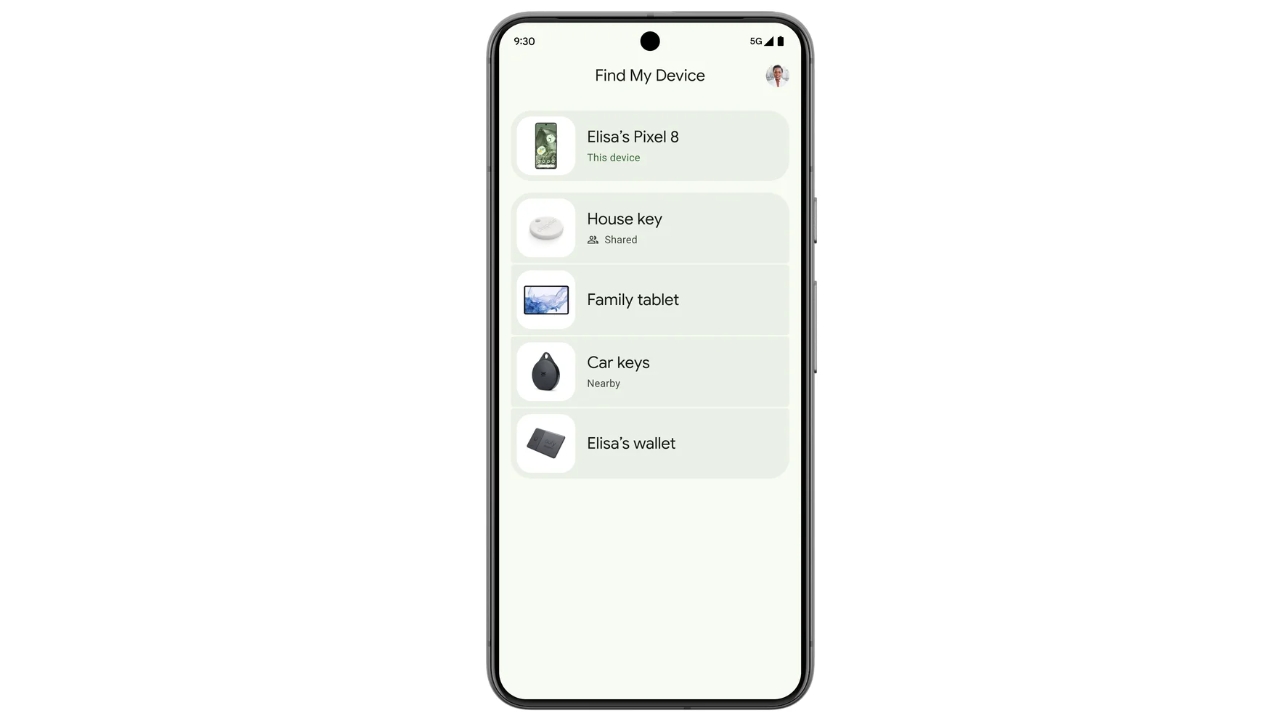
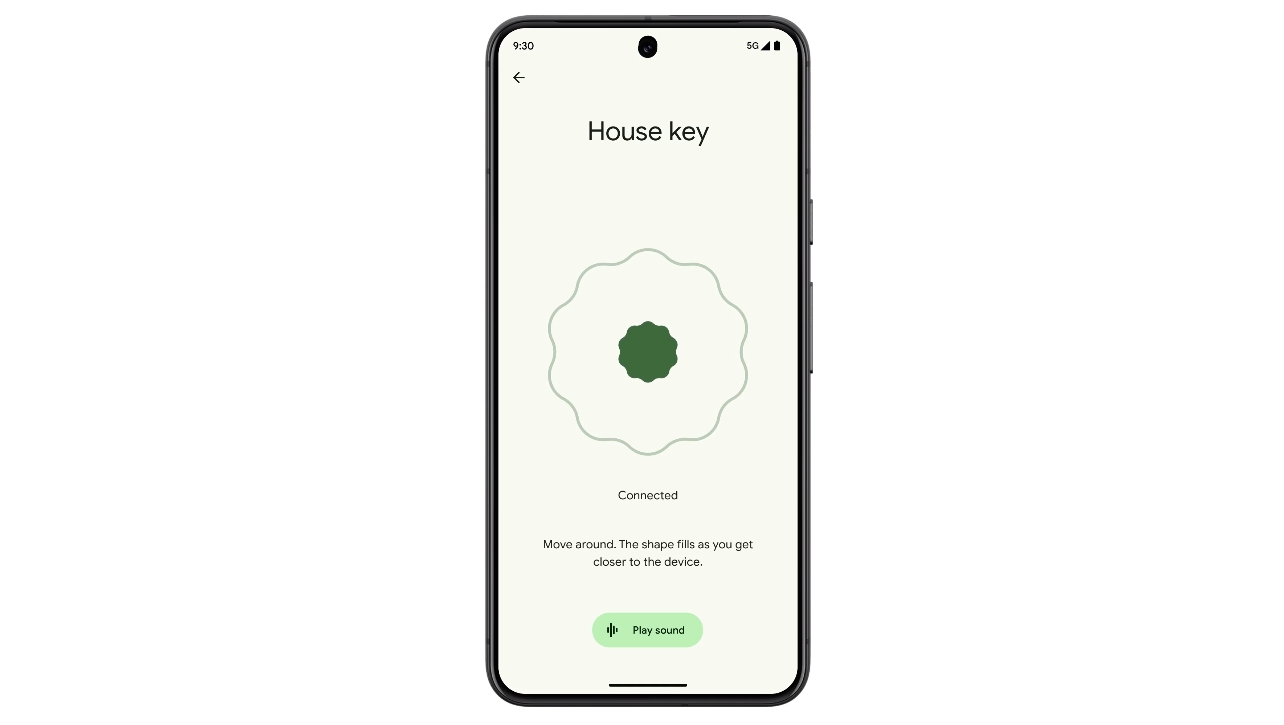
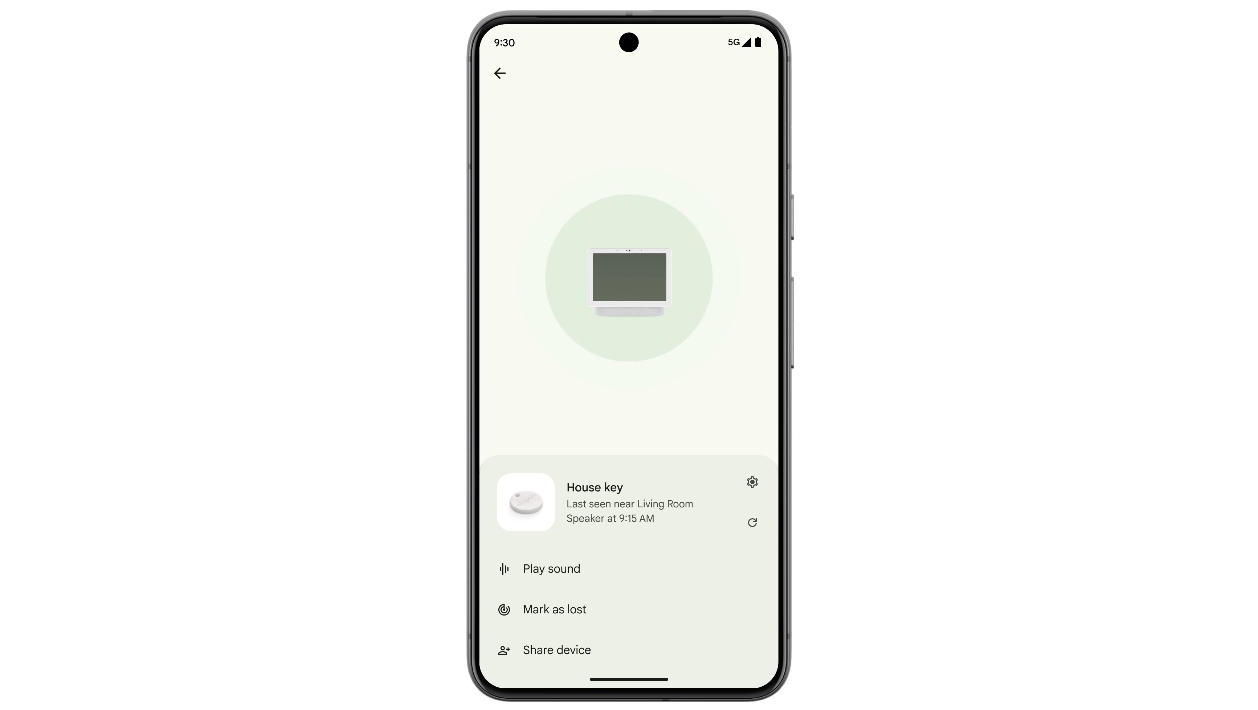
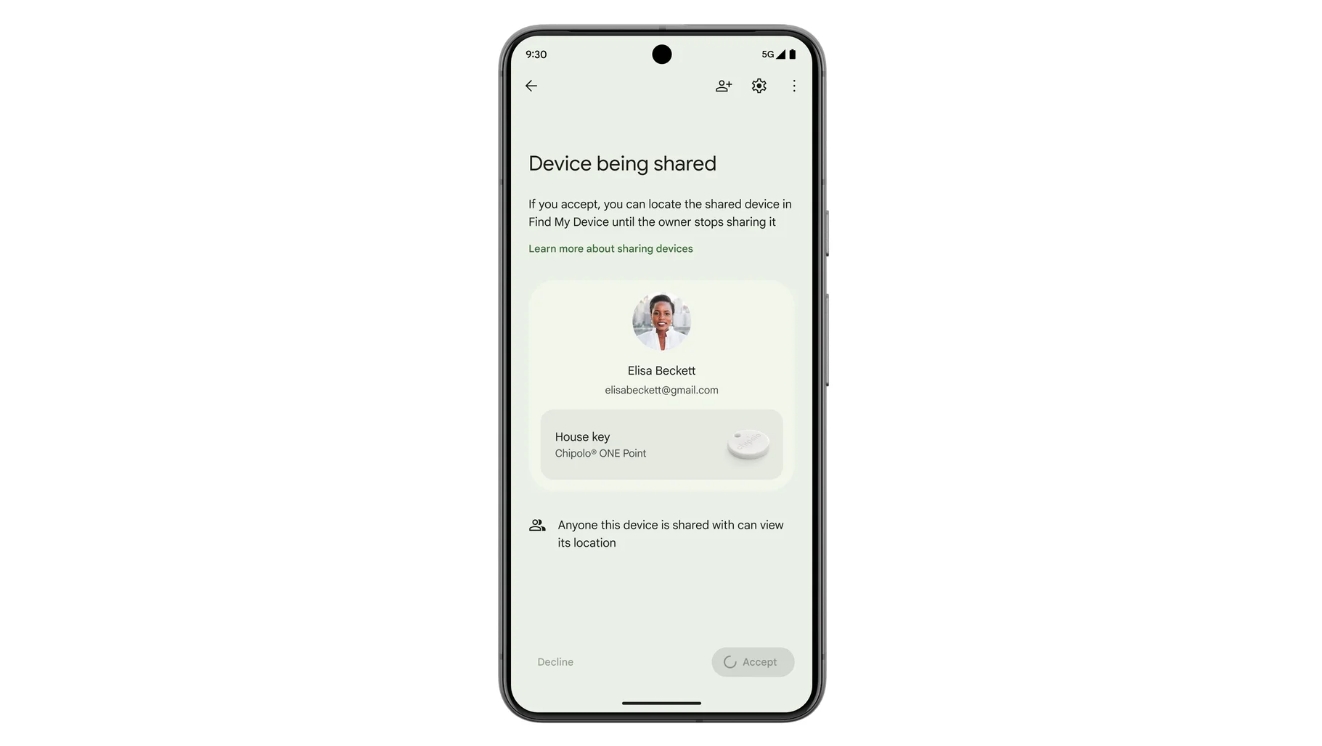
Near and far
The network isn’t just designed for tracking distant items either. There’s also a ‘Find nearby’ button that will help you pinpoint the exact location of nearby items, and if you’ve lost an item in your home, then you can also see its proximity to any Nest devices you have.
Additionally, there's the option to share tracking for a device with friends or family members, so you can all track and locate the item when lost. But unless you choose to share, everything is kept private and secure – with features like end-to-end encryption of location data and aggregated device location reporting.
It has been a long wait for all these features. Google originally planned to roll out its new Find My Device network around the middle of 2023, but then delayed it to give time for Apple to fully roll out unknown tracker alerts (so that people couldn’t use the Find My Device network to track iPhone users without them being alerted). Said unknown tracker feature finally lands with iOS 17.5, which is currently in beta, leaving Google once again free to launch its upgraded Find My Device network.
The big question now is, if and when we’ll see Google AirTags – or in other words, the company’s rival to the Apple AirTag. As with such a powerful-sounding Find My Device feature now available, it would make sense for Google to introduce its own Bluetooth tracker – a device we've already heard rumor of.
You might also like
- Android Find My Device: what is the new tracker network and how will it work?
- Google AirTags: why the incoming Apple rivals could take over the world
- Apple AirTag review
James is a freelance phones, tablets and wearables writer and sub-editor at TechRadar. He has a love for everything ‘smart’, from watches to lights, and can often be found arguing with AI assistants or drowning in the latest apps. James also contributes to 3G.co.uk, 4G.co.uk and 5G.co.uk and has written for T3, Digital Camera World, Clarity Media and others, with work on the web, in print and on TV.